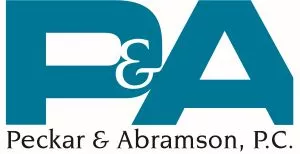Introduction
In a matter of "first impression," on November 30, 2023, the Appellate Division affirmed the New Jersey Superior Court decision in Ernest Bock & Sons-Dobco Pennsauken Joint Venture v. Township of Pennsauken and Terminal Construction Corp., finding that the New Jersey Public Works Contractor Registration Act, N.J.S.A. 34:11-56.48 to -56.57 ("PWCRA" or the "Act"), applies to a joint venture formed for the sole purpose of bidding on a public works contract. Therefore, the Court held that the PWCRA requires any joint venture bidding on public works projects in New Jersey to be registered under the Act at the time of bid submission. Accordingly, the Township of Pennsauken acted within its authority and properly rejected the bid submission of the Ernest Bock & Sons-Dobco Joint Venture which was not registered under the Act in the name of the joint venture at the time of its bid submission, despite the individual members of the joint venture being registered.
Background
On March 23, 2023, the Township of Pennsauken solicited bids to construct a new public library and municipal complex pursuant to the Local Public Contracts Law, N.J.S.A. 40A:11-1 to – 60 ("LPCL"). The Township's notice to bidders included detailed bid specifications and forms, which were required to be completed and submitted as part of any bid. Ernest Bock & Sons, Inc. and Dobco, Inc., formed a Joint Venture for the specific purpose of bidding on, and if awarded, performing construction of the project. In its bid, the Ernest Bock & Sons-Dobco Pennsauken Joint Venture (the "JV") identified itself as a "JV partnership", however, did not submit a PWCRA registration certificate. Instead, it submitted individual PWCRA registration certificates for Ernest Bock & Sons, Inc. and Dobco, Inc.
At the bid opening, it was revealed that the JV was the lowest bidder, and Terminal Construction Corp. ("Terminal") was the second lowest bidder. Terminal challenged and protested any award to the JV based upon the existence of material non-waivable defects present within the JV's bid submission. On June 15, 2023, the Township adopted a Resolution rejecting the JV's bid and awarding the contract to Terminal on the basis that the JV's failure to obtain and submit a PWCRA registration certificate in the name of the JV constituted a material non-waivable defect requiring the rejection of the JV's bid as nonresponsive. Shortly thereafter, the JV commenced an action seeking to enjoin and to overturn the bid award to Terminal.
Analysis
The crux of the dispute was whether the JV's omission of the PWCRA registration certificate was a material deviation from the Township's bid specifications and from the Act itself. Both the Trial Court and Appellate Division ultimately rejected the JV's principal arguments, that 1) the LCPL does not require pre-bid registration of joint ventures; and 2) the PWCRA does not bar unregistered entities from performing awarded contracts.
Pursuant to Section 56.51 of the Act, "no contractor shall bid on any contract for public work ... unless the contractor is registered pursuant to this act." Additionally, that provision of the statute prohibits any contractor or subcontractor from engagement on a public work project "unless the contractor or subcontractor is registered pursuant to this act." While the statute does not expressly identify a "joint venture" in its definition of "contractor", the Appellate Division agreed with the Trial Court's determination that a joint venture is akin to a "partnership" – a term that is expressly included in the statutory definition of "contractor".1 Further, the Township's bid specifications expressly required bidders to be registered under the PWCRA and made registration a mandatory requirement, non-compliance with which would constitute a material and non-waivable defect.2
Having held that the JV's PWCRA registration prior to submitting its bid was a mandatory requirement, the Appellate Division found sufficient credible evidence to support the Township's conclusion that the JV's bid was materially defective and, therefore, non-conforming and nonresponsive.
Lesson Learned
In reaching its decision, the Appellate Division cited to the desire for local governments to have clarity in enforcing the LCPL and determining compliance with the PWCRA. To that end, joint ventures pursuing public works projects in New Jersey must ensure that the joint venture has its own separate and distinct registration under the PWCRA prior to submitting its bid. It is not enough that both entities forming the joint venture are registered, nor does it satisfy the statutory requirements for the JV to secure registration prior to award but after the bid is submitted. Ultimately, obtaining the appropriate registration certificate is a simple process and one that can be accomplished in relatively short order.
1. The Appellate Division noted in its Opinion that if a joint venture is not considered a partnership, it is an "other legal business entity" within the statutory definition of "contractor" set forth at N.J.S.A. 34:11-56.50.
2.The Appellate Division's Opinion also made note of a "Local Finance Notice" issued by the Department of Consumer Affairs on November 1, 2021, reminding municipalities of the PWCRA requirement that a contractor must have its PWCRA registration certificate in-place before responding to solicitations for bids on public works contracts subject to prevailing wage.
The content of this article is intended to provide a general guide to the subject matter. Specialist advice should be sought about your specific circumstances.


